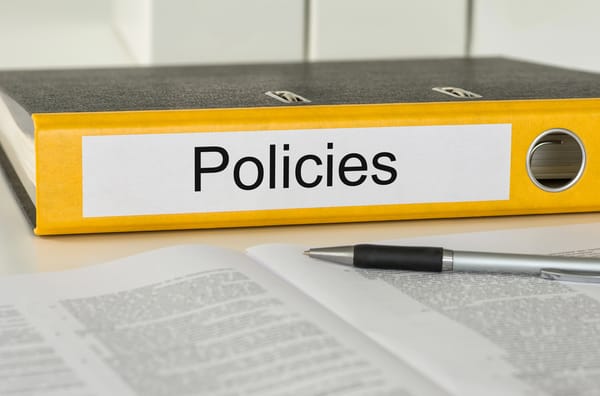Advantages of workplace policies – and which ones you need
By Joanna Weekes
If your company has well-developed workplace policies and procedures, it can provide many benefits to your workplace.
Policies help to manage legal risk and allow you to outline the benefits and opportunities your company provides to its workers – this helps to improve workforce morale, worker retention and job satisfaction.
8 advantages of workplace policies
Benefits of workplace policies include that they:
- Provide workers with knowledge about what is expected of them, e.g. behaviour and performance standards;
- Provide rules and guidelines for decision-making in routine situations;
- Provide a consistent and clear response across the company in dealing with situations;
- Demonstrate your good faith that workers will be treated fairly and equally;
- Provide an accepted method of dealing with complaints and misunderstandings to help avoid claims of bias and favouritism;
- Provide a clear framework for the delegation of decision-making;
- Provide a means of communicating information to new workers; and
- Ensure that you are better equipped to defend claims of a breach of employer obligations, e.g. health and safety legislation.
What policies and procedures should your company have?
Determining which policies and procedures are appropriate for your company will depend (to some extent) to the type and size of your business.
But you must ensure that as a minimum, your company has well-developed policies and procedures in the following areas:
- Workplace Health and Safety Policy
- Drug and Alcohol Policy
- Workplace Bullying policy
- Equal Opportunity and Sexual Harassment Policy
- Smoke-Free Workplace policy
- Confidential Information Policy
- Internet and Email Usage Policy
- Social Media Policy
- Code of Conduct
- Safety planning and objectives procedures
- Communication and consultation procedure
- Hazard identification procedure
- Risk assessment procedure
- Risk control procedures
- Performance monitoring and review procedures
- Safety management procedure
Remember, not all policies and procedures are suitable for all workplaces. For example, depending on the nature of your workplace and the work carried out by your business, you may need policies and procedures regarding contractor safety, chemical management, fatigue management, traffic management, confined space entry, change management, occupational hygiene, manual handling, personal protective equipment (PPE), return to work, etc.
If you are not sure, it might be a good idea to engage a professional for advice and assistance in identifying areas and developing policies and procedures appropriate for your workplace.
From the experts behind the Health & Safety Handbook, the Bulletin brings you the latest work health and safety news, legal updates, case law and practical advice straight to your inbox every week.

